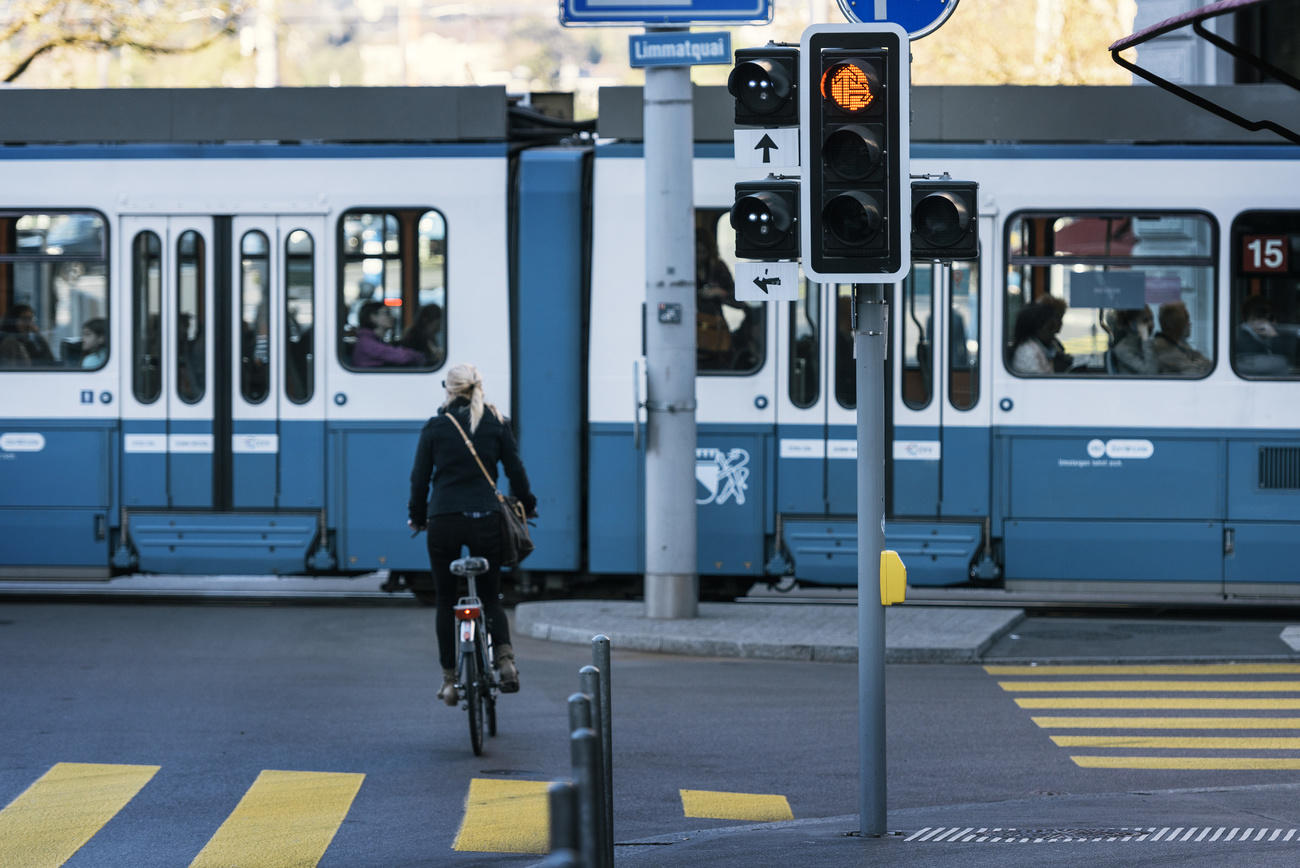
Zurich scientists find link between stress and the brain

A neurotransmitter called noradrenaline, which is produced in large quantities during stressful situations, reconfigures communications within the brain, Zurich researchers have found.
In moments of acute stress our brain has just a split second to react, explains Swiss federal technology institute ETH Zurich in a press releaseExternal link. The brain focuses attention on the most important environmental cues in order to make life-or-death decisions in fractions of a second, which means efficient communication must be quickly established between various areas of the brain.
So far it has been unclear how the brain guides these rapid processes. Tests on humans suggested a major role for noradrenaline, but it is not possible to directly examine this theory in people because noradrenaline release cannot be selectively manipulated.
Tests on mice have now allowed the researchers to prove for the first time that a release of noradrenaline was itself enough to connect various regions of the brain very quickly.
ETH Zurich says the scientists “applied the latest genetic tricks to stimulate a tiny centre in the mouse brain, the locus coeruleus, which supplies the entire brain with noradrenaline”. They performed real-time magnetic resonance imaging (MRI) scans of the anaesthetised animals’ brains while triggering noradrenaline release from the locus coeruleus.
In what are described as “astonishing results”, the researchers found that selective noradrenaline release re-wired the connectivity patterns between different brain regions in a way that was similar to the changes observed in humans under acute stress.
“Our results show that modern imaging techniques in animal models can reveal correlations that allow us to understand fundamental brain functions in humans,” says ETH Zurich researcher Johannes Bohacek. The researchers hope to use similar analyses in humans to diagnose pathological hyperactivity of the noradrenaline system, which is associated with anxiety and panic disorders.
The full report has been published in the journal NeuronExternal link.
So happy and proud that our paper on functional #connectomeExternal link changes after #DREADDExternal link induced #LocusCoeruleusExternal link activation is out in @NeuroCellPressExternal link today! 🍾https://t.co/ZR9YWYA4oIExternal link @NCMLabETHExternal link @Valerio_ZerbiExternal link @AmaliaFloriouSExternal link
— Johannes Bohacek (@BohacekLab) June 18, 2019External link

More
Brain overload and faulty judgment cause most road accidents

In compliance with the JTI standards
More: SWI swissinfo.ch certified by the Journalism Trust Initiative






























You can find an overview of ongoing debates with our journalists here . Please join us!
If you want to start a conversation about a topic raised in this article or want to report factual errors, email us at english@swissinfo.ch.